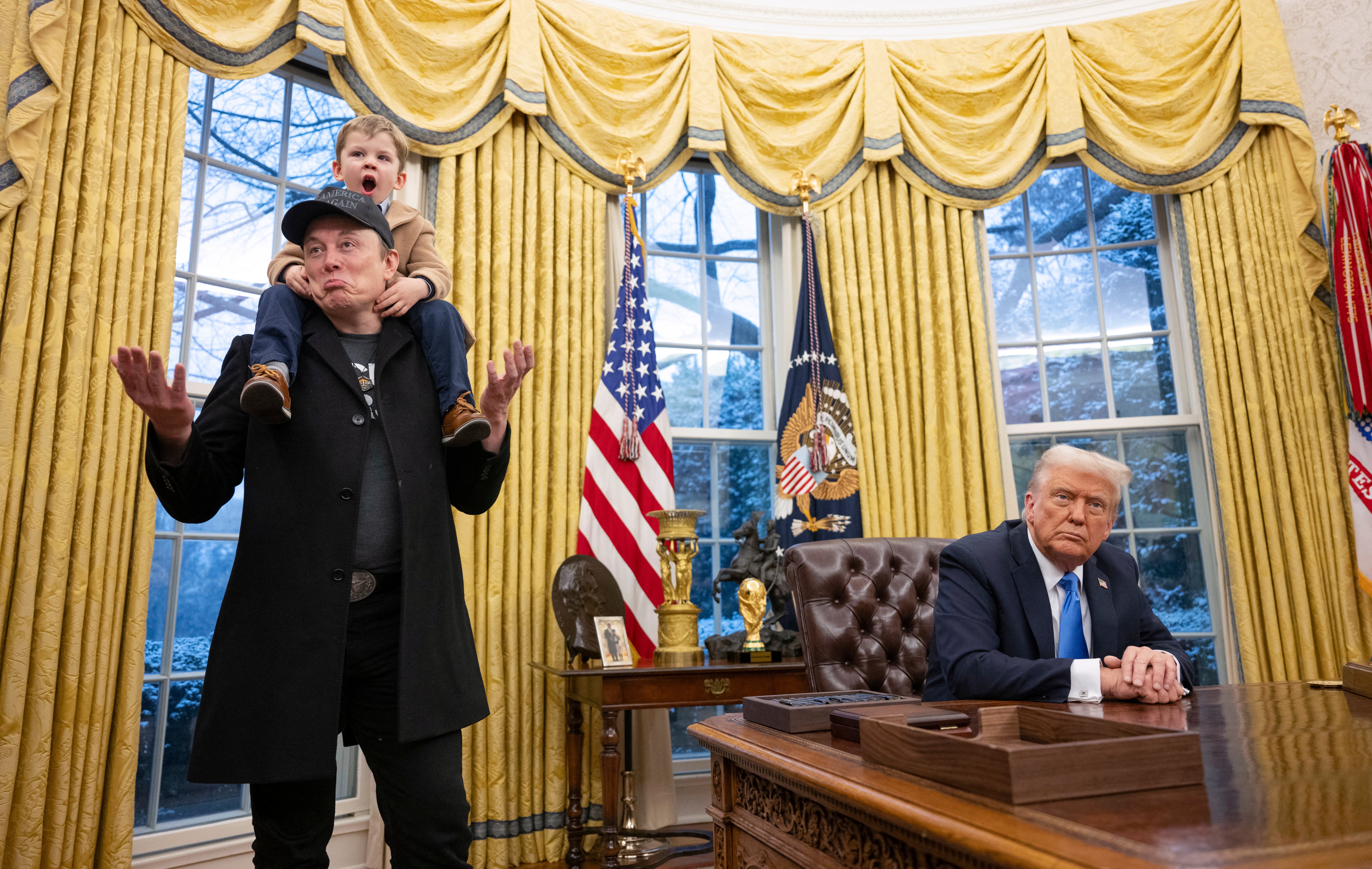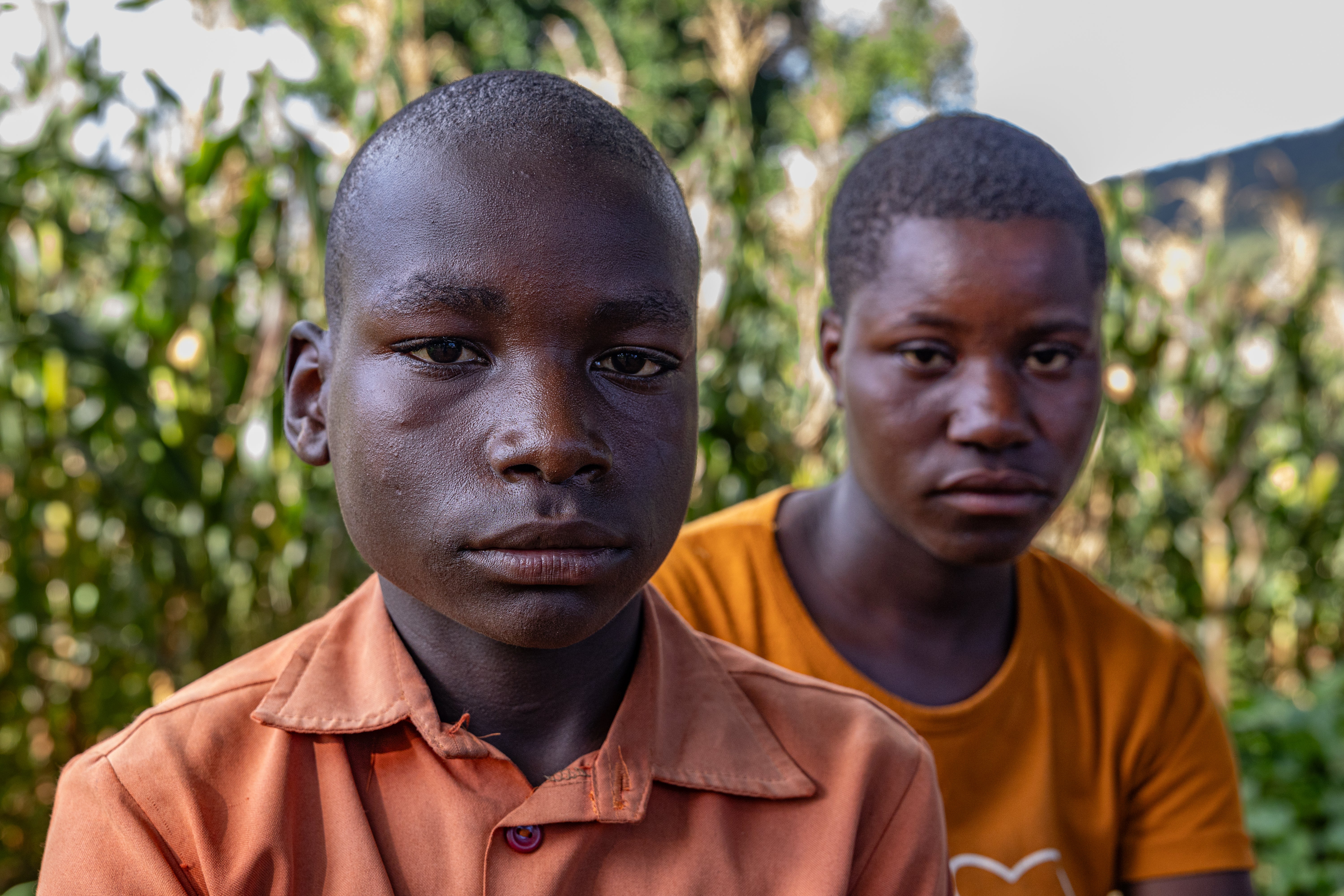Trump blames Europe as deadly impact of US cuts on Aids pandemic grows
Trump lashes out at France and Germany amid growing evidence that HIV patients are being denied life-saving drugs. Bel Trew reports
Donald Trump has accused European countries of not helping with the HIV/Aids pandemic, as the UN warned sweeping US cuts to its HIV response programme will cost millions of lives.
Speaking to The Independent, comments included in a new documentary on the impact of the cuts, the president said the United States had spent “billions and billions of dollars” to combat the disease and was the “only country” assisting, adding that now it was Europe’s turn to step up.
“Nobody does anything but the United States… Other countries should be helping us with that,” he said onboard Air Force One during a trip back from Florida this month. “We’re the only country. Where are the others? Where is France? Where is Germany? We’ve spent billions and billions of dollars.”
Although the US has by far been the largest funder of HIV support worldwide – providing more than two-thirds of the cash, according to the UN’s Aids agency (UNAIDS) – France, Germany, and the UK are also among the top five contributors globally.
The President’s Emergency Plan for Aids Relief (Pepfar) was first introduced by Republican president George W Bush in 2003 and is widely regarded as one of the world’s most successful responses to a global disease crisis, having saved over 26 million lives.
UNAIDS told The Independent that Pepfar was integral to putting the world on track to end the HIV/Aids pandemic by 2030. But that progress is now in jeopardy.
In a shocking move during the first few hours of his presidency, Mr Trump signed an executive order freezing almost all foreign assistance for 90 days while programmes were reviewed to ensure they aligned with “American interests”.
That included a funding freeze for Pepfar, disrupting supplies and treatment for 20 million people worldwide.

Although a waiver was later issued by the State Department to allow the continuation of life-saving services, it remains unclear if the waiver is being implemented on the ground. The 90-day freeze period has now passed without a permanent decision made on the future of funding for programmes like Pepfar.
A documentary investigation by The Independent, which includes reporting from remote areas in Uganda and Zimbabwe, shows that money is not getting through. Clinics are having to close and patients have lost access to their medication, causing illness, death and medication-resistant HIV strains.
The Independent’s own calculations, based on UNAIDS data, show that if funding is not reinstated and nothing changes, the HIV/Aids death toll will triple by 2030 — reaching the devastating levels seen in the 1990s and early 2000s. At the same time, there could be an additional 6 million new infections, including 1 million children, due to mother-to-child transmission.
Pepfar’s impact tracker has predicted that, as a result of the aid freezes, an estimated 35,000 deaths have already occurred.
On the ground in Uganda, The Independent met women like Hadja, 27, a mother of three in Uganda, who is HIV positive and pregnant but unable to get hold of antiretrovirals – meaning she cannot prevent transmission of HIV to her unborn child.
The documentary also features Hardlife, a 15-year-old Zimbabwean who lost both his HIV-positive parents earlier this year because they could not afford or find their medications.
The film also visits an HIV/Aids clinic in southern Uganda that was 100 percent funded by USAID.
Staff said they had to shut down for two months, then reopen with a skeleton crew working without pay. They now have only two months’ worth of drug supplies left and worry about the future of their patients.

Angeli Achrekar, deputy executive director of UNAIDS, told The Independent there were “challenges” in applying the waiver.
“The whole HIV service delivery system is an ecosystem. Any one kink in the system could cause a real ripple effect across the entire HIV ecosystem,” she said.
When asked about the apparent failure of the waiver, MrTrump told The Independent that it “shouldn’t be happening” and urged the countries involved “to act properly on the waiver”.
“But I do ask: why are we the only country doing it? I’m a big fan of getting this solved,” he added.
Although the US was carrying the lion’s share of the financial burden of funding the fight against HIV/Aids – and is in the words of UNAIDS “the most important donor” – it is not the only donor.
According to data shared by the Global Fund to Fight Aids, tuberculosis and malaria, Germany and France are among the largest donors.
The Global Fund is another major part of the global response to HIV/Aids that pools resources from governments, civil society, and the private sector to fund programmes to end these diseases.
Their data shows France, a founding member of the Global Fund is the largest European donor and the second-largest public donor overall, behind the US. They have contributed €6.9bn since the fund was started 20 years ago.
In the last replenishment conference in 2022, France pledged €1.6bn for the years 2023 to 2025 — nearly a quarter increase from its previous contribution.

Germany, meanwhile is the fourth-largest public donor overall, contributing over €5.3bn since the fund was created 20 years ago. It pledged €1.3bn for the 2023–2025 cycle, according to the Global Fund.
UNAIDS officials told The Independent that while the US has provided the most funds, countries have also played a significant role relative to their economic size.
There has also been a move to increase domestic funding and resilience from countries hardest hit by the HIV/Aids pandemic.
“We do recognise and want to celebrate that the US has been the largest donor and has done an amazing job during the last decades. Thanks to that we are where we are in the HIV response, so it has been amazing leadership and contributions,” Jaime Atienza Azcona, a director at UNAID, told The Independent.
“Others have done their part, but to a lesser degree. Going forward, we need a more balanced approach among the different donors. But we still need donor support and we still need the US leadership, even if it is at a lower scale.”
The Independent reached out to the foreign ministries of both France and Germany for comment on President Trump’s accusations but has yet to receive a reply.
This story has been produced as part of The Independent’s Rethinking Global Aid series
Join our commenting forum
Join thought-provoking conversations, follow other Independent readers and see their replies
Comments